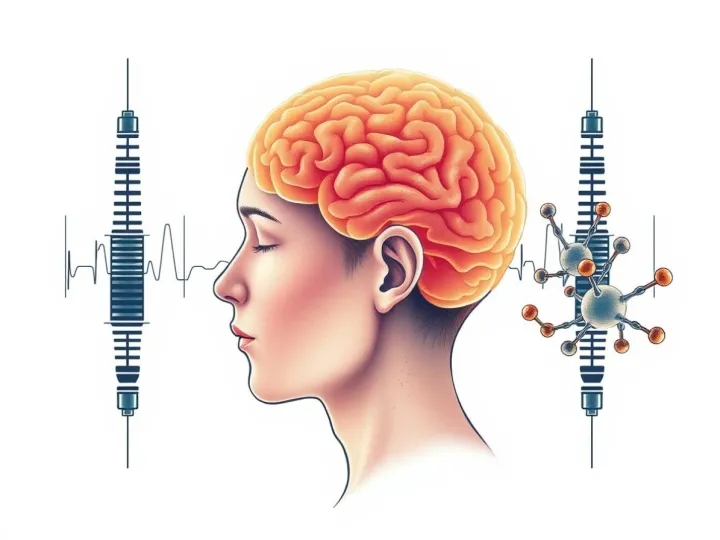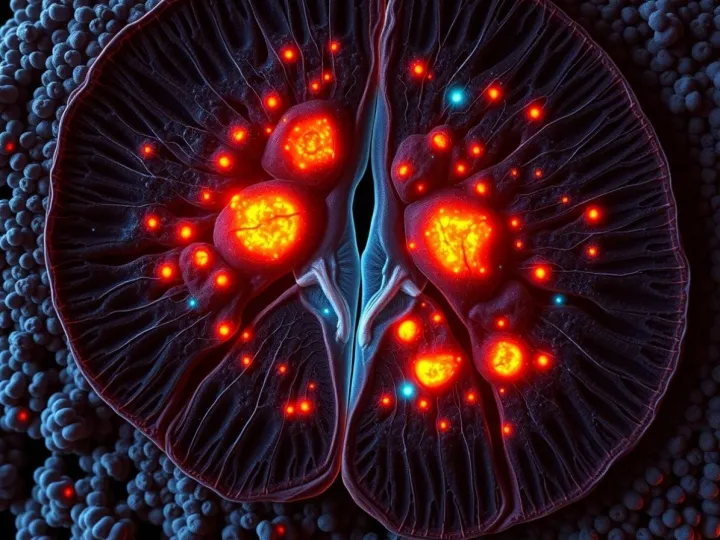About Seven Reflections
Seven Reflections began as a trusted destination for astrology, numerology, and destiny card systems for over a decade - helping people find meaning in cycles, symbols, and synchronicities. Over more than a decade, we've guided readers worldwide with daily reflections, personal insights, and timeless wisdom.
Today, we also bring that same spirit of exploration into new frontiers. Our press and news coverage spans topics at the crossroads of science, psychology, and human potential, including:
- Business & Workplace - leadership, performance, and organizational wellbeing.
- Cognitive Science & Psychology - the study of mind, memory, and creativity.
- Methods & Measurement - data, tools, and frameworks that advance understanding.
- HealthTech & Therapeutics - digital health, neuroscience, and innovation in care.
- Ethics & Governance - technology, responsibility, and human-centered design.
- Culture & Human Experience - from dreaming and altered states to systems of meaning.
Our mission remains constant: to connect timeless symbolic frameworks with modern insights, offering readers both practical guidance and a deeper understanding of the structures that shape our lives.
Press Release Submission Guidelines
Seven Reflections provides a platform for businesses, organizations, and professionals to share their news with a wider audience. Submitting your press release here ensures it is reviewed, prepared, and published in line with our editorial standards. You can choose to publish directly on Seven Reflections or expand your reach with optional EIN Presswire distribution to journalists, editors, and media outlets worldwide. See out Submission Guidelines
Our Coverage Areas
Trends in leadership, organizational performance, HR, employee wellbeing, burnout prevention, and workplace productivity.
Research on the brain, mind, and cognition - covering memory, attention, perception, creativity, and altered states of consciousness.
Breakthroughs in flow, innovation, sports psychology, peak performance, and the science of creativity.
Original research data, surveys, behavioral analytics, and trend reports impacting business, health, or culture.
Updates on AI safety, privacy, policy, and ethical practices in psychology, neuroscience, and human-centered technology.
Conferences, summits, global forums, awards, fellowships, and calls for papers related to mind, health, and human advancement.
Wearables, apps, biomarkers, CBT/DTx tools, and digital health platforms supporting mental health and human development.
Historical studies linking science, consciousness, philosophy, and symbolic systems.
Books, documentaries, podcasts, and publishing projects shaping public understanding of consciousness, psychology, or human potential.
New indices, validation studies, benchmarks, and frameworks for assessing cognition, resilience, creativity, or human potential.
Discover findings at the intersection of brain science, mental health, and physiology - from neural circuit mapping and emotional regulation to neurodegenerative diseases, brain-body interaction, and the biological foundations of consciousness.
Press releases and announcements on food, supplements, and nutrition science shaping brain health, cognition, and aging.
New datasets, protocols, interoperability frameworks, and open-source tools advancing science, wellness, or technology.
Announcements of research collaborations, startup investments, corporate partnerships, grants, or accelerator programs.
Clinical trials, regulatory updates, therapeutic protocols, and innovations in psychoactive substances.
Discoveries in sleep science, circadian rhythm, lucid dreaming, and their applications to health and productivity.
Foundational models and frameworks of reality - from space-time emergence and resonance theories to cognitive architectures and system dynamics.
Press Releases & Updates

Can Blocking One Enzyme Reduce Alcohol Intake and Protect the Liver?
A new study published in Nature Metabolism reports that alcohol stimulates the body to produce its own fructose, activating a metabolic pathway that increases drinking behavior and contributes to liver injury. Using multiple genetic mouse models and pharmacological inhibitors, the researchers show that blocking fructose metabolism through ketohexokinase (KHK) reduces alcohol preference, lowers reinforcement behaviors, and protects against alcohol-associated liver disease. The findings uncover a unifying mechanism linking alcohol intake with liver pathology, suggesting new therapeutic avenues for alcohol use disorder and metabolic liver disease.

Early Neural Coding of Odor Features Predicts Human Odor Discrimination
A new study in the Journal of Neuroscience reports that the human brain begins encoding the physicochemical features of odor molecules within the first hundred milliseconds after inhalation. By recording EEG activity while participants smelled a diverse range of odors, researchers found that early theta-band responses reflect low-level molecular structure and predict individual differences in odor discrimination ability. The findings offer a clearer view of how early sensory coding shapes olfactory behavior, separating rapid structural decoding from later representations of odor pleasantness.

When Confidence and Reality Don't Match: What Students Get Wrong About Their Abilities
Students are often told that strong metacognitive skills - planning, monitoring, and evaluating their learning - lead to better grades. But a new study shows a surprising disconnect: self-reported metacognition doesn't reliably predict academic performance. Instead, students' beliefs about how they compare to their peers align far more closely with their actual results. The findings challenge long-held assumptions about how learning really works and reveal the powerful role of academic self-perception in shaping success.

A First Look at How Our Genes Act Differently Across the Body
A new open-access resource called the Spatial GWAS Atlas offers the first large-scale look at how genetic traits appear in precise locations within real tissues. Published in Nucleic Acids Research, the project integrates thousands of genome-wide association studies with spatial transcriptomics, allowing scientists to see not only which genes influence a trait, but where in the body those effects emerge. The atlas spans multiple tissues, species, and platforms, giving researchers a powerful way to study complex diseases in their native biological context.

The Brain Doesn't Add Things Up: Why Bundles Feel Less Valuable Than They Are
A new study in the Journal of Neuroscience reveals that the human brain does not simply add up the value of multiple items when making consumer decisions. Instead, it actively "rescales" how much a bundle is worth, generating a lower value than the sum of its parts. Using a three-day deep-fMRI protocol, researchers found that the same regions of the prefrontal cortex compute value for both single items and bundles, but the neural signal is attenuated when multiple items appear together. The findings help explain everyday purchasing choices and the psychology behind bundled offers.

Smoking cannabis with tobacco may disrupt the brain's natural calming system, study suggests
A preliminary imaging study in Drug and Alcohol Dependence Reports suggests that people who smoke cannabis together with tobacco may experience measurable disruptions to the brain's endocannabinoid system - a network involved in stress regulation, mood, and emotional balance. Using positron emission tomography, researchers found elevated levels of FAAH, an enzyme that breaks down the calming endocannabinoid anandamide, in those who co-used tobacco compared with cannabis-only users. The discovery highlights a potential neurobiological reason why co-use is often linked to worse clinical outcomes.
Press Contact
For questions or reprint requests: